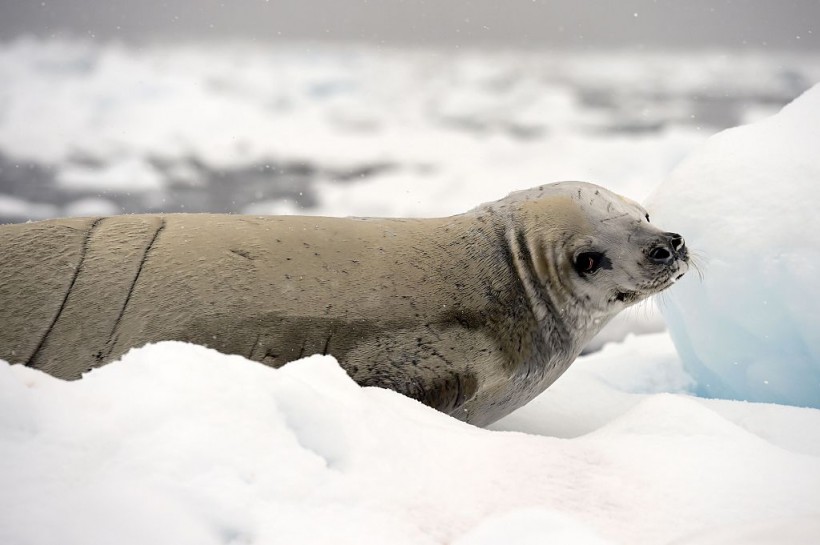Woods Hole Oceanographic Institution researchers discovered the unique ability of mother Weddell seals. A recent study revealed how mother Weddell seals transferred iron from their livers to the milk their pups drink. The high iron content of the milk allows the seal pups to have tremendous diving skills that are infamous in Weddell seals.
Iron Transfer From Mother to Pup

A Weddell seal (Leptonychotes weddellii) rests on an ice floe in the western Antarctic peninsula on March 05, 2016. Waddling over the rocks, legions of penguins hurl themselves into the icy waters of Antarctica, foraging to feed their young. Like seals and whales, they eat krill, an inch-long shrimp-like crustacean that forms the basis of the Southern Ocean food chain. But penguin-watchers say the krill are getting scarcer in the western Antarctic peninsula under climate change and fishing threats.
Researchers from WHOI studied the behavior of Weddell seals for seven years, from 2010 to 2017. The team noticed that not all the seals chose to breed annually. Hence, during the study, experts divided the seals into two groups: skip breeders and currently breeding. Soon the researchers realized that the lactation period of females during breeding was longer than other seal species.
Weddell seals are classified as true seals that belong to the Phocidae family. While most true seal species have lactation periods ranging from two to five weeks, Weddell seals, on the other hand, lactate for six to seven weeks, reports ZMEScience.
Researchers were keen to understand the impact of longer lactation periods on breeding female Weddell seals and their pups. Hence, they decided to observe the micronutrient composition in the seal's milk and blood of the breeding seals and compare them to the skip breeding group.
The analysis showed that iron mobilization increased in the breeding Weddell female after the birth of their pups, and iron from their livers was released into the blood. The iron-rich blood led to the production of milk rich in iron.
In the study published in the journal Nature Communications, titled "Iron mobilization during lactation reduces oxygen stores in a diving mammal," researchers claimed that a mother Weddell has to breastfeed 2.75 to 5.46 liters of iron-rich milk to her pup daily. This also suggests that mother seals transfer 309 to 614 milligrams of iron to their pup daily.
Furthermore, the amount of iron the pups receive is more than eight to 15 times more than what a human of the same size would need to maintain the right micronutrient levels in the body. The iron content in the milk of Weddell seal mothers can be a hundred times more than what is found in the milk of typical land mammals.
Weddell Seals and their Mother's Sacrifice
Leptonychotes weddellii or Weddell Seals are carnivorous mammals that can live up to 30 years, grow to roughly 10 feet, and weigh 1,200 pounds. These large seals typically live around Antarctica. As an adult, Weddell seals can stay underwater for roughly 20 minutes, with some being recorded to dive for more than an hour and a half. This is why they are considered the most proficient divers on the planet.
Since Weddell seal mothers transfer their body's iron to their pups, their diving time must be reduced after motherhood. Researchers noticed that females in breeding spend five minutes less underwater on average than they lactate.
RELATED ARTICLE: Feral Horses Origin: Assateague's Horses May Finally be Revealed with Century-Old Tooth
Check out more news and information on Animals in Science Times.










!['Cosmic Glitch' in Einstein's Theory of General Relativity Could Be Explained in This New Scientific Tweak [Study]](https://1721181113.rsc.cdn77.org/data/thumbs/full/53435/258/146/50/40/cosmic-glitch-in-einsteins-theory-of-general-relativity-could-be-explained-in-this-new-scientific-tweak-study.jpeg)



